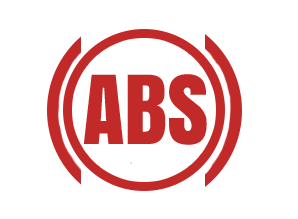
07939 013003 |
Basic car maintenance and checks
Knowing how to perform basic checks and maintenance is not just required as part of your test but it also very useful once you are driving on your own. You can see the questions that could be put to you below.
damj01nXcZU
5dZRbU2MiDk
Show me questions
Q1
When it's safe to do so, can you show me how you wash and clean the rear windscreen?

At an appropriate opportunity, use the REAR windscreen washer
Q2
When it's safe to do so, can you show me how you wash and clean the front windscreen?

At an appropriate opportunity, operate the FRONT windscreen washer
Q3
When it's safe to do so, can you show me how you'd switch on your dipped headlights?

Use the headlight switch to change the light settings
Q4
When it's safe to do so, can you show me how you'd set the rear demister?

Set the relevant control
Q5
When it's safe to do so, can you show me how you'd operate the horn?

When appropriate, use the horn
Q6
When it's safe to do so, can you show me how you'd demist the front windscreen?

Set the heating controls to de-mist the front windscreen
Q7
When it's safe to do so, can you show me how you'd open and close the side window?

Use the window control to open a window
Tell me questions
Q8
Tell me how you'd check that the brakes are working before starting a journey.

Brakes should not feel spongy or slack. Brakes should be tested as you set off. Vehicle should not pull to one side.
Q9
Tell me where you'd find the information for the recommended tyre pressures for this car and how tyre pressures should be checked.

Manufacturer's guide, use a reliable pressure gauge, check and adjust pressures when tyres are cold, don't forget spare tyre, remember to refit valve caps.
Q10
Tell me how you make sure your head restraint is correctly adjusted so it provides the best protection in the event of a crash.

The head restraint should be adjusted so the rigid part of the head restraint is at least as high as the eye or top of the ears, and as close to the back of the head as is comfortable. Note: Some restraints might not be adjustable.
Q11
Tell me how you'd check the tyres to ensure that they have sufficient tread depth and that their general condition is safe to use on the road.

No cuts and bulges, 1.6mm of tread depth across the central three-quarters of the breadth of the tyre, and around the entire outer circumference.
Q12
Tell me how you'd know if there was a problem with your anti-lock braking system.

The warning light would become illuminated on the instrument panel if there is a fault.
Q13
Tell me how you'd check the direction indicators are working. You don't need to exit the vehicle.

Explain you'd operate the switch (turn on ignition if necessary), and then walk round vehicle (as this is a 'tell me' question, you don't need to physically check the lights).
Q14
Tell me how you'd check that the headlights and tail lights are working. You don't need to exit the vehicle.

Explain you'd operate the switch (turn on ignition if necessary), then walk round vehicle (as this is a 'tell me' question, you don't need to physically check the lights).
Q15
Tell me how you'd check the brake lights are working on this car.

Explain you'd operate the brake pedal, make use of reflections in windows or doors, or ask someone to help.
Q16
Tell me how youd check the power-assisted steering is working before starting a journey.

If the steering becomes heavy, the system may not be working properly. Before starting a journey, 2 simple checks can be made. Gentle pressure on the steering wheel, maintained while the engine is started, should result in a slight but noticeable movement as the system begins to operate. Alternatively turning the steering wheel just after moving off will give an immediate indication that the power assistance is functioning.
Q17
Tell me how you'd switch on the rear fog light(s) and explain when you'd use it/them. You don't need to exit the vehicle.

Operate switch (turn on dipped headlights and ignition if necessary). Check warning light is on. Explain use.
Q18
Tell me how you switch your headlight from dipped to main beam and explain how you'd know the main beam is on.

Operate switch (with ignition or engine on if necessary), check with main beam warning light.
Q19
Tell me how you'd check that the engine has sufficient oil.

Identify dipstick/oil level indicator, describe check of oil level against the minimum and maximum markers.
Q20
Tell me how you'd check that the engine has sufficient engine coolant.

Identify high and low level markings on header tank where fitted or radiator filler cap, and describe how to top up to correct level.
Q21
Tell me how you'd check that you have a safe level of hydraulic brake fluid.

Identify reservoir, check level against high and low markings.

